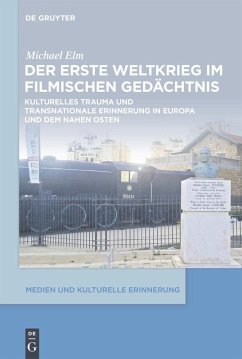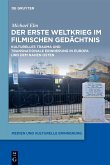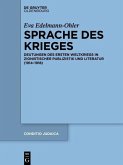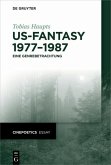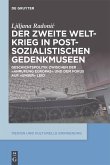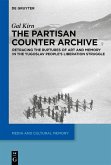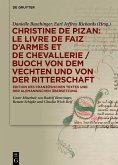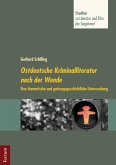This monograph examines the development of television and cinema productions on the centenary of the First World War from the perspectives of cultural memory, trauma theory, and film theory. It traces genre patterns and the historical development of First World War films and explores the ways in which the violent history of the war is coded cinematically. The corpus includes not only films made around the centenary of the war, but also in the period leading up to it, between 1989 and 2013. As one major result, the monograph points out new cinematic developments that occurred during the centenary period. With its regional focus on films that deal with the war in the former Ottoman Empire and in Europe, the study seeks to determine whether the war, often regarded as a 'seminal catastrophe' in European memory, is remembered differently in the Middle East. It argues that the complex history of First World War remembrance gave rise to new aesthetical coding of violence and an accompanying moral grammar of memory, which, however, differs considerably in its historical content between Europe and the Middle East.
Michael B. Elm, Minerva Institute for German History, Tel Aviv University, Tel Aviv, Israel; The Frankfurt Memory Studies Platform, Goethe Universität, Frankfurt, Deutschland; Friedrich-Meinecke-Institut, Freie Universität, Berlin, Deutschland.
Dieser Download kann aus rechtlichen Gründen nur mit Rechnungsadresse in A, B, BG, CY, CZ, D, DK, EW, E, FIN, F, GR, HR, H, IRL, I, LT, L, LR, M, NL, PL, P, R, S, SLO, SK ausgeliefert werden.

